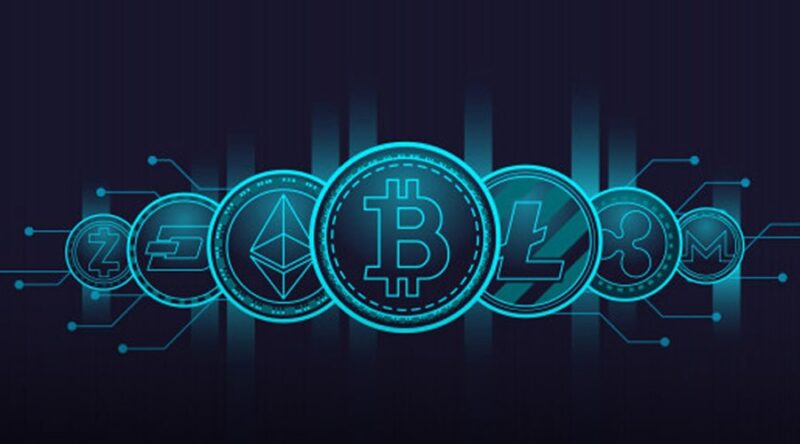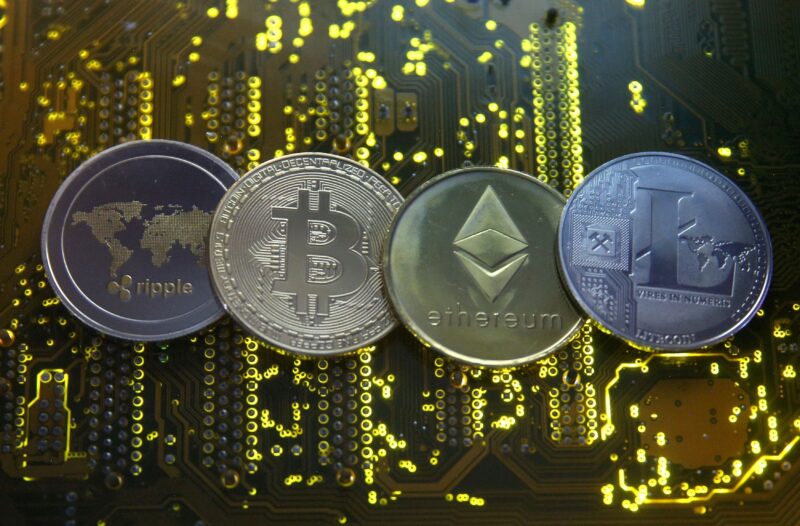Decentralized exchanges (DEXs) have emerged as a transformative force in the cryptocurrency landscape, offering a paradigm shift from traditional centralized exchanges. DEXs operate on blockchain networks and enable direct peer-to-peer trading without the need for intermediaries.
In this article, we will explore the concept of decentralized exchanges, their benefits, and challenges. By empowering users with greater control, security, and privacy, DEXs have the potential to revolutionize the way we trade and interact with cryptocurrencies.
What is a Decentralized Exchange?
A decentralized exchange, or DEX, is a type of cryptocurrency exchange that operates on a decentralized network, usually a blockchain. Unlike centralized exchanges that rely on a central authority to facilitate trades and hold user funds, DEXs enable direct peer-to-peer trading through smart contracts.
These smart contracts act as automated, self-executing protocols that handle order matching, trade execution, and fund transfers.
Do check out: Cryptocurrency Regulations: A Global Overview and the Road Ahead

Advantages of DEXs
Decentralized exchanges offer several advantages over their centralized counterparts:
- Greater Control and Security: DEXs eliminate the need to deposit funds into a centralized exchange, reducing the risk of hacks or exit scams. Users retain control of their private keys, which are required to access and transfer funds, ensuring greater security and reducing the likelihood of theft.
- Privacy and Anonymity: DEXs provide a higher level of privacy as they don’t require users to disclose personal information or complete extensive Know Your Customer (KYC) procedures. Transactions on DEXs are typically pseudonymous, offering users the ability to trade without revealing their identity.
- Reduced Counterparty Risk: With DEXs, users maintain control of their funds until the trade is executed, reducing the risk of funds being held by a centralized exchange. This eliminates the potential for exchange hacks or the loss of funds due to mismanagement.
- Global Accessibility: DEXs operate on a decentralized network, enabling users from anywhere in the world to participate in trading without geographic restrictions. This inclusivity opens up opportunities for users in regions with limited access to traditional financial services.
- Resistance to Censorship: DEXs are inherently resistant to censorship as they operate on decentralized networks that cannot be easily shut down or controlled by a single entity. This ensures that users can trade freely without worrying about restrictions or limitations imposed by governments or regulatory authorities.
Types of Decentralized Exchanges
There are different types of decentralized exchanges, each with its own unique characteristics:
- On-Chain DEXs: These DEXs operate entirely on the blockchain, with the order books, trading, and settlement processes executed directly on the blockchain network. Examples include Uniswap, SushiSwap, and PancakeSwap, which leverage automated market makers (AMMs) to facilitate trading through liquidity pools.
- Off-Chain DEXs: These DEXs utilize off-chain order books and only settle the trades on the blockchain. Users submit their orders to the off-chain order book, and trades are executed and settled on-chain. Examples include Loopring and 0x, which employ off-chain order relayers.
- Hybrid DEXs: These DEXs combine elements of both on-chain and off-chain mechanisms. They leverage off-chain order books for efficient order matching while settling trades on-chain. This hybrid approach aims to provide a balance between scalability and decentralization.

Challenges and Limitations
Despite their advantages, DEXs face certain challenges and limitations:
- Liquidity: DEXs often struggle with lower liquidity compared to centralized exchanges, as they rely on users providing liquidity to sustain the trading pairs. However, liquidity has been improving with the advent of liquidity aggregation protocols and incentives for liquidity providers.
- User Experience: Some DEXs still have a learning curve and can be less intuitive for novice users compared to centralized exchanges. Improving user interfaces, enhancing usability, and offering better educational resources are areas that DEXs are actively working on.
- Speed and Scalability: Blockchain networks, on which DEXs operate, face scalability issues and limited transaction throughput. This can result in slower transaction confirmation times and higher fees during periods of network congestion. However, advancements in layer 2 scaling solutions, such as sidechains and payment channels, are being developed to address these scalability concerns.
- Regulatory Challenges: DEXs may face regulatory challenges in certain jurisdictions due to their pseudonymous nature and lack of KYC procedures. Regulatory frameworks around DEXs are still evolving, and compliance with local laws can present a hurdle for wider adoption.
Do check out: How to Spot and Avoid Cryptocurrency Scams
Future of DEXs
Despite the challenges, the future of decentralized exchanges looks promising. DEXs are continuously evolving and addressing limitations to provide enhanced user experiences and greater liquidity. Some potential developments include:
- Interoperability: Interoperability between different DEXs and blockchain networks would enable seamless trading across multiple platforms and increase liquidity. Cross-chain technologies, such as atomic swaps and interoperability protocols, are being explored to facilitate this interoperability.
- Enhanced User Interfaces: DEXs are investing in improving user interfaces to make the trading experience more intuitive and user-friendly. This includes integrating features such as order history, charting tools, and customizable interfaces.
- Regulatory Compliance Solutions: DEXs are exploring solutions to enhance regulatory compliance while maintaining user privacy. Projects are being developed to enable decentralized identity verification and compliance tools to address regulatory requirements without compromising decentralization principles.
- Layer 2 Scalability Solutions: Layer 2 scaling solutions, such as state channels and sidechains, are being adopted by DEXs to improve transaction throughput and reduce fees. These solutions aim to provide faster and more cost-effective trading experiences.
Conclusion
Decentralized exchanges have emerged as a powerful alternative to traditional centralized exchanges, offering users increased control, security, privacy, and global accessibility. While they still face challenges such as liquidity and user experience, DEXs continue to innovate and address these limitations.
With ongoing developments in interoperability, user interfaces, regulatory compliance, and layer 2 scaling solutions, DEXs are poised to play a crucial role in the future of cryptocurrency trading. By empowering users and fostering a decentralized financial ecosystem, DEXs contribute to the vision of a more inclusive and transparent financial system.










